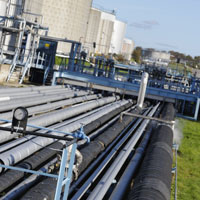A Response to Dinesh Thirupuvanam’s Article on Biodegradability Claims
By Robert Eisenbach, VP Marketing, Green Genius
Last week, Triple Pundit published a post entitled “California’s ‘Truthful Environmental Advertising in Plastics’ Bill Awaiting Action.” In it, author Dinesh Thirupuvanam addresses an issue we at Green Genius believe is a serious problem: confusion and misinformation about the terms “biodegradable” and “compostable.”
Rightly, Thirupuvanam points out that consumers often make assumptions about what those terms mean, and when a company capitalizes on that confusion, allowing consumers to think a product does one green thing when in fact it does another, less-green thing, that’s greenwashing.
Which is why we were surprised and disappointed when the author endorsed California Senate Bill 1454, which we opposed, and referred matter-of-factly to Green Genius as a greenwasher.
First, to the question of greenwashing. As a company, we pride ourselves on our transparency so we take accusations of greenwashing extremely seriously. In fact, one need only spend a few minutes on our websiteto know exactly what our products do, how they biodegrade, what testing methods we use, and who our third-party certifier is. We also make it very clear in our FAQs that our products are not compostable and should be disposed of in a landfill (like all other trash bags).
Not compostable? Nope. Unlike so many “compostable” plastic products, ours do not make an end-of-life claim that we cannot support. We know that trash bags almost always end up in landfills so we’ve designed them to biodegrade under those conditions.
Meanwhile, corn plastic manufacturers are all too eager to tout their products’ compostability, despite the fact that these products are truly only hot compostable and most consumers do not have access to facilities where such composting is possible. Even when they do, those facilities almost never process corn plastic products in accordance with ASTM D6400, the standard referenced by companies to claim their products are “compostable.”
But back to CA Senate Bill 1454. As Thirupuvanam pointed out, we opposed this bill—that part is true. What’s not accurate is the other argument he makes—that SB 1454 “will eliminate (for Californians at least) today’s confusing distinction that biodegradable and compostable do not mean the same thing.” It will not.
What SB 1454 will actually do is make it illegal for products to claim any form of natural degradability unless they’re compostable per ASTM D6400, even if they do, in fact, biodegrade. Which is great if you’re a maker of corn-based plastic, but horrible for everyone else. It not only eliminates competition for corn-based plastic, but also eliminates products that would reduce the amount of plastic choking up our landfills.
Here’s what else is wrong with the bill:
- Compostability is not a logical standard to use since hot compost facilities that will actually accept “compostable” plastic remain rare in the state of California (see FindAComposter.com).
- Even Jepson Prairie, the operator that handles all of San Francisco’s curbside compost, only takes 60 – 90 days to fully process food waste. The compostable plastic standard that the corn plastic companies are using (D6400) allows 180 days. What does Jepson Prairie do to compostable plastic items that don’t biodegrade sufficiently in 90 days or less? They send it to a landfill!
In his post, Thirupuvanam claims that SB 1454 “has the support of the key players in the industry” and he’s right, if he means the corn industry. Archer Daniels Midland and Cargill (by way of its subsidiary NatureWorks) lobbied heavily for this bill. The Biodegradable Products Institute (BPI) did too, and why wouldn’t they? BPI was created by the person who developed corn-based plastic for Cargill (he also led the creation of ASTM D6400), and the organization is principally composed of corn-based compostable product manufacturers. (As an aside, if BPI is so concerned about the confusion between biodegradability and compostability, why don’t they change their name?)
Thus, far from actually clarifying the distinction between “biodegradability” and “compostability,” CA SB 1454 would simply let manufacturers of compostable corn plastic run the table, while stifling the development of technologies that can reduce the accumulation of plastic where regrettably most plastic actually goes: a landfill.
And so here’s a final thought on greenwashing. If the average Californian doesn’t have access to hot compost facilities that accept “compostable” plastic, are those products actually compostable? And if those products aren’t compostable in practice, but consumers are buying them because they claim to be, who then is greenwashing?


